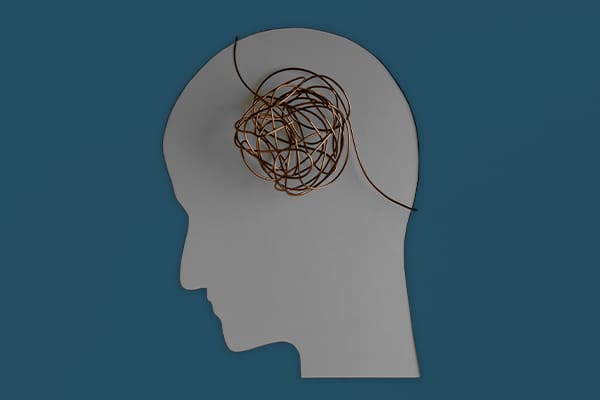
Many cancer patients experience worrisome changes in their abilities to think and process information. Some even make jokes about cancer’s effects on mental status. These cancer-related brain changes are known as chemo brain. And some people may find them more frustrating than funny.
Chemo brain is a type of mental decline tied to cancer and treatments like chemotherapy. It consists of new struggles with focus, memory and multitasking. These challenges can affect many aspects of a person’s life, including their abilities to work and learn.
Patients with mesothelioma or other cancers may wonder if and how chemo brain will affect them. Each chemo brain experience is unique. But patients may find comfort in understanding key facts about chemo brain.
1: Chemo Brain Can Come From Cancer, Chemo or Other Treatments
Cancer patients have reported chemo brain symptoms in many circumstances. Some patients experience mental challenges from cancer alone. Others encounter mental shifts during or after treatment.
Cancer treatments linked to chemo brain include:
- Chemotherapy
- Hormone therapy
- Radiation
- Surgery
Some researchers suspect immunotherapies may also cause chemo brain. But studies have not yet confirmed this suspicion.
2: Chemo Brain May Disappear Quickly or Linger for Years
The severity and duration of chemo brain varies quite a bit. Some patients may experience mild, temporary symptoms that disappear within months. Others may struggle with chemo brain for years.
A study of 56 breast cancer survivors can provide some insight into this variation. About half the patients reported new mental struggles shortly after chemotherapy treatment. A year later, most of them had substantially recovered. About a third still had noticeable chemo brain symptoms at the one-year follow-up.
Researchers are working to understand factors that may put patients at risk of more severe or longer-lasting chemo brain symptoms. Patients should discuss any chemo brain concerns with an experienced oncologist. Their doctor can help set realistic expectations.
3: Most Cancer Patients Will Experience Chemo Brain at Some Point
Estimates vary, but researchers say up to 85% of treated cancer patients report some form of mental issue. And chemo brain symptoms can have far-reaching impacts, especially on quality of life. So patients may want to talk to their doctors about chemo brain early in their cancer journeys. This may help patients identify early symptoms and doctors recommend timely interventions.
4: Exercise Is the Most Promising Treatment for Chemo Brain
Doctors and researchers have investigated many chemo brain treatments. Most have not been very effective. But several types of exercise have achieved remarkable success in addressing chemo brain symptoms.
Aerobic exercise, strength training and mind-body techniques have all been tied to improvements in chemo brain symptoms. Tested mind-body techniques include yoga, tai chi and qi gong. Effective programs incorporated exercise 2 – 7 times each week for a few months or longer.
Exercise seems to be the most promising approach, but patients may want to explore other chemo brain treatments. Experts say brain training exercises, stimulant medications and memory aids like notebooks may help with chemo brain.
5: Multiple Sclerosis Drugs May Help Prevent Chemo Brain
As of May 2023, no drugs have approval for treating chemo brain, but that may change in the near future. A recent study identified one key factor in the development of chemo brain. It showed a protein called S1PR1 sends signals that trigger chemo brain symptoms. So blocking S1PR1 may help prevent chemo brain.
At least two drugs that block S1PR1 already exist. They each have approval for treating certain forms of multiple sclerosis. But these drugs may have a place in treating or preventing chemo brain, since they block S1PR1.
“Repurposing these drugs to prevent [chemo brain] would be a ground-breaking shift toward enhancing patient quality of life in cancer treatment.”
Squillace et al. in The Journal of Clinical Investigation
Studies are needed to confirm these drugs do not interfere with cancer treatment and truly help with chemo brain. But experts seem hopeful, and that may give patients cause for hope as well.




